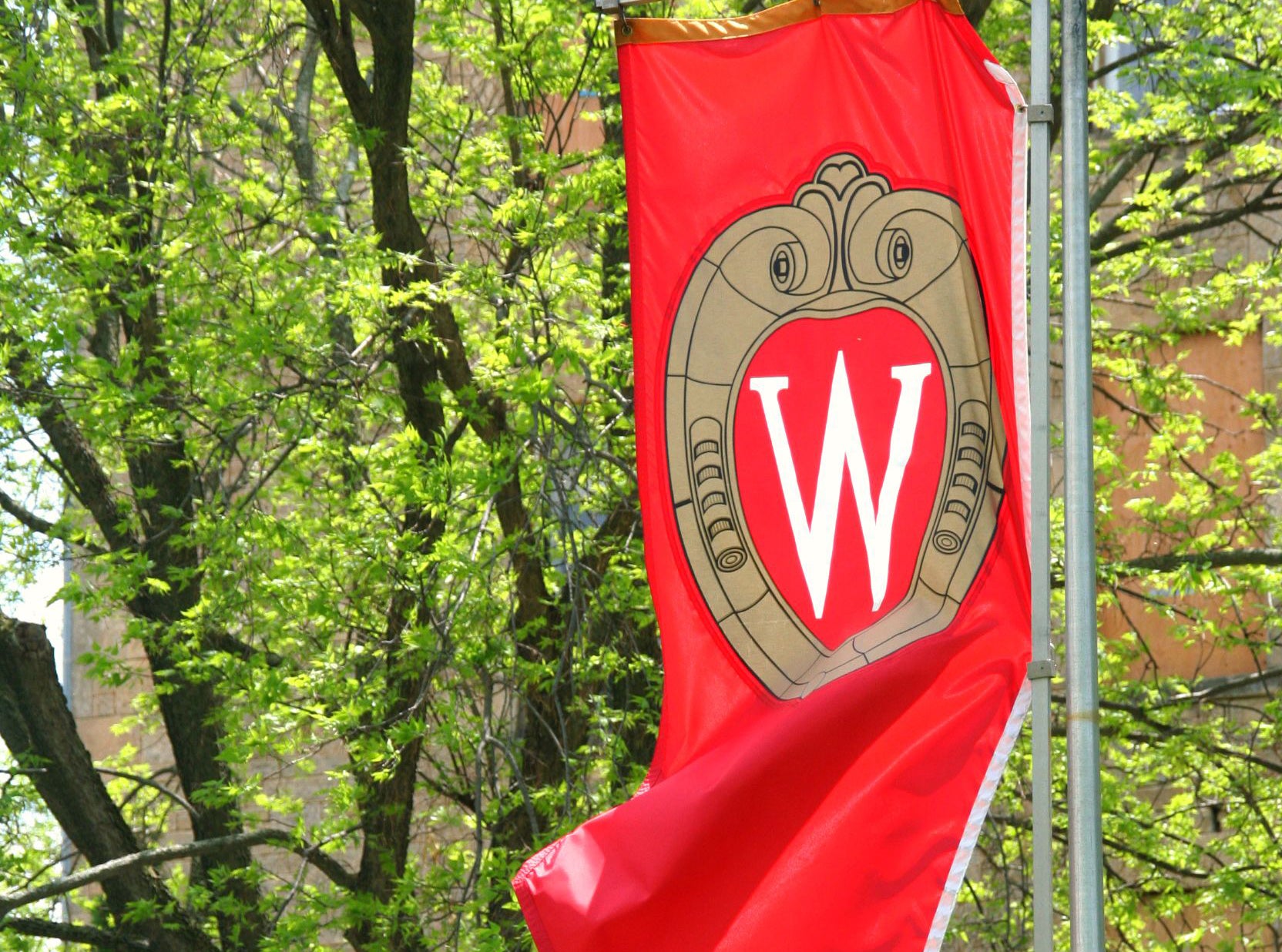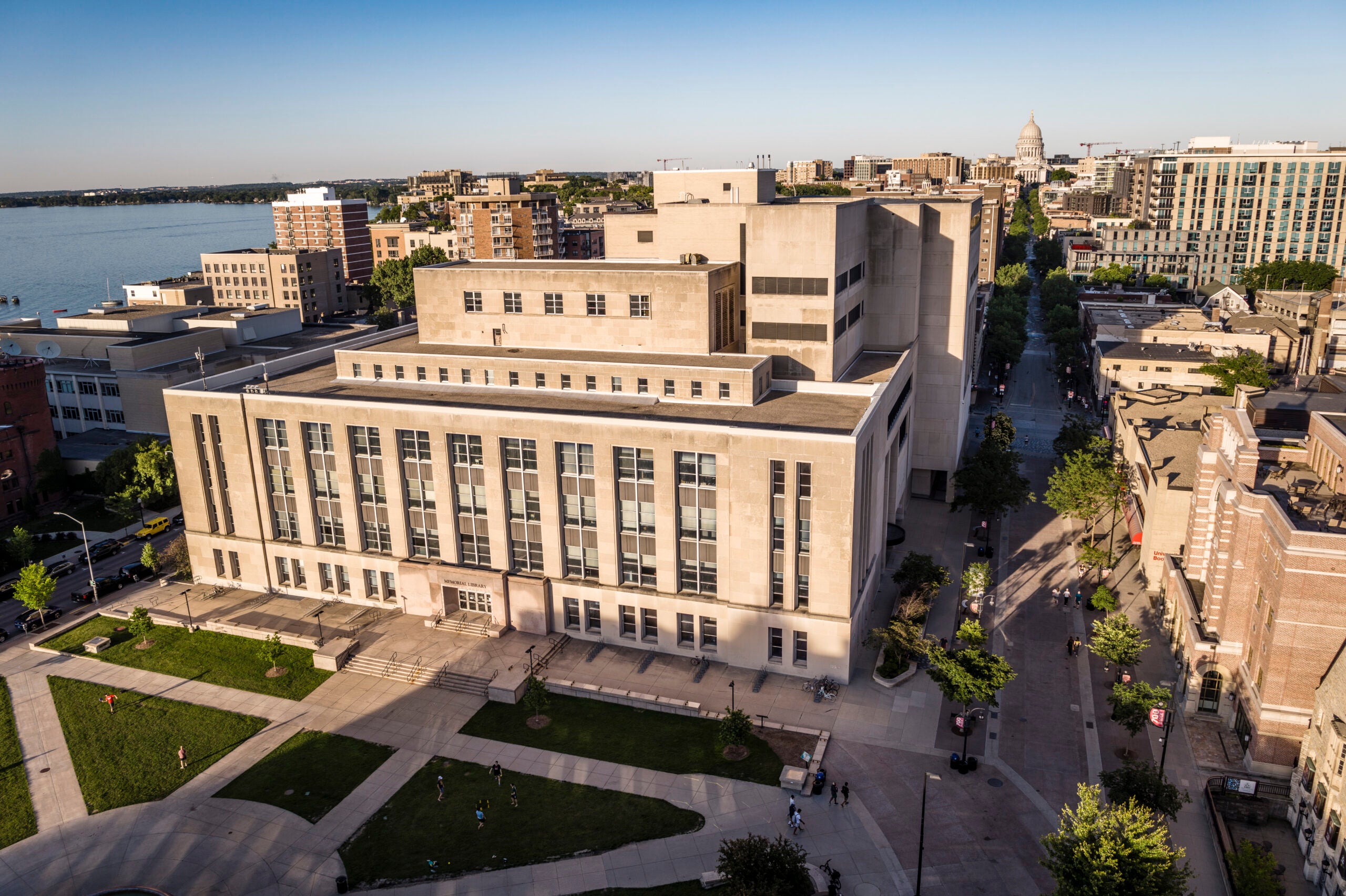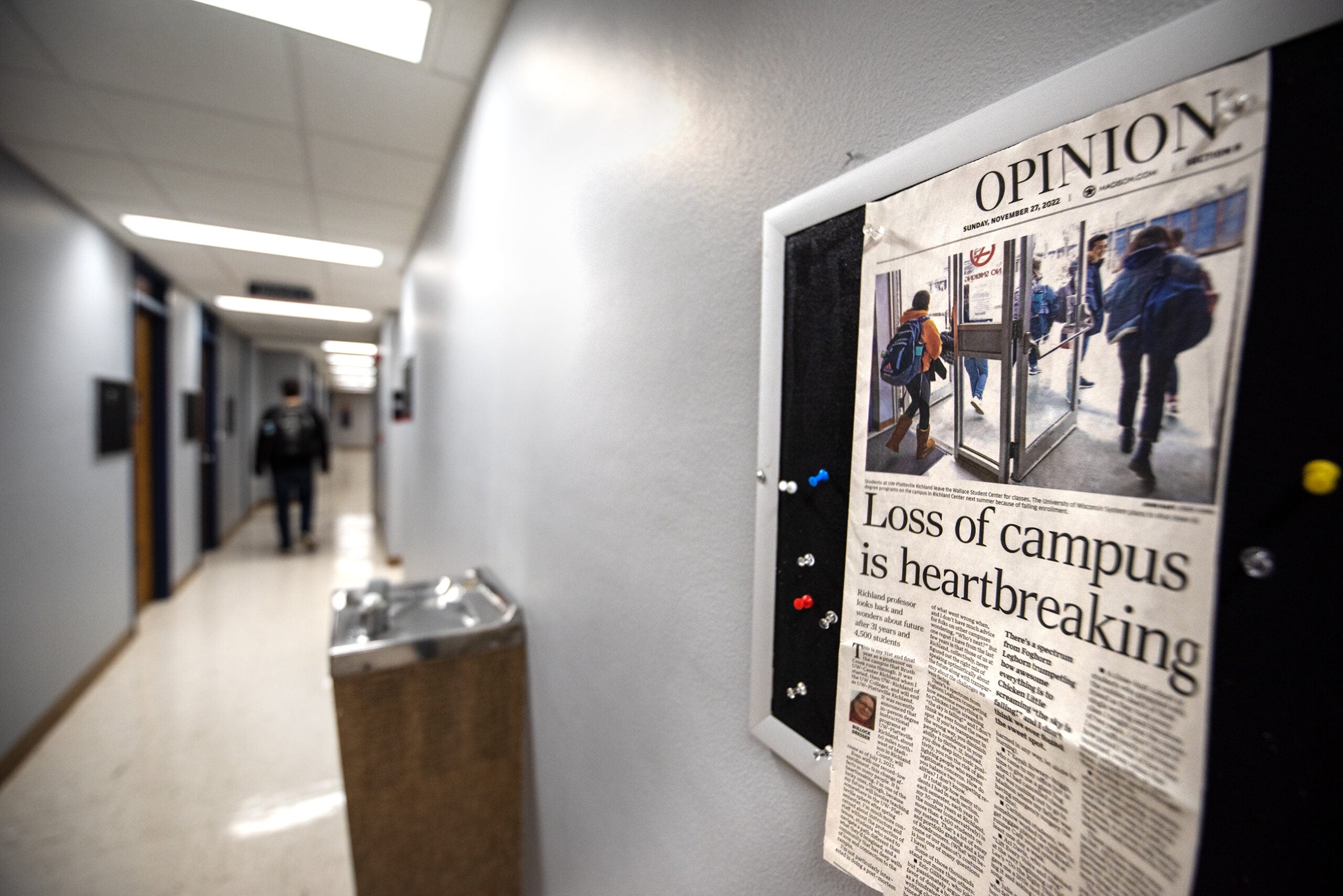The University of Wisconsin System regents have approved a new budget that raises students’ fees and charges them more for housing and food.
The Republican-crafted state budget prohibits system officials from raising undergraduate tuition but they’re free to raise fees and other price tags. Under the system’s 2016-17 budget proposal, fees will increase an average of $59 per student across the system.
UW System President Ray Cross said the hikes are largely in line with inflation.
News with a little more humanity
WPR’s “Wisconsin Today” newsletter keeps you connected to the state you love without feeling overwhelmed. No paywall. No agenda. No corporate filter.
“Well, inflation is about 1.7 percent and these increases, for the most part, in operational increases were about that,” said Cross “There were other increases that were approved by students in elections or by their student-led government that may differ from that.”
For example UW-La Crosse students will see a $259 increase to help pay for a new student center.
The regents approved the budget unanimously on Thursday during a meeting in Milwaukee.
On top of revenue from fees, the budget also spends an additional $160 million in reserves. By the end of the fiscal year, the system’s tuition balance will have dropped by two-thirds since 2012. Republican state lawmakers and Gov. Scott Walker have been pressuring the UW System to reduce its financial reserves but Cross said he’d prefer a larger fund balance.
“But we’re hopeful that as we go forward with this budget, we’ll be more successful in operating more efficiently as well as securing additional resources from the state and others in an effort to improve those so we are in a safer and more comfortable place,” he said.
Regents also agreed to ask lawmakers to give Wisconsin students another roughly $19 million in financial aid over the next two year, an increase of about 33 percent.
At Cross‘ urging, the board voted to ask the state Higher Educational Aids Board to include the extra money for the Wisconsin Grant-UW program in its 2017-19 budget request to Gov. Scott Walker.
System officials say state funding for the program has stood at $58.3 million since 2010-11 even though about 6,400 additional students have become eligible between 2008-09 and 2014-15, resulting in smaller individual grants.
The additional money would raise the average award back to the 2009-10 level of $2,161.
Regent Tony Evers, who also serves as the state Superintendent of Schools, said putting more money into the financial aid program would boost college hopes for high school seniors.
“You know, as they apply for school, that they’re going to be able to afford it,” said Evers. As financial aid decreases, the actual applicants from kids that come from low-income homes decreases. So it’s a direct correlation. There has to be more resources available.”
Walker says he’s open to the idea of putting more financial aid funding into the next state budget, but hasn’t spelled out an amount.
Editor’s note: This story has been updated with additional reporting including comments from Ray Cross.
Wisconsin Public Radio, © Copyright 2026, Board of Regents of the University of Wisconsin System and Wisconsin Educational Communications Board.




